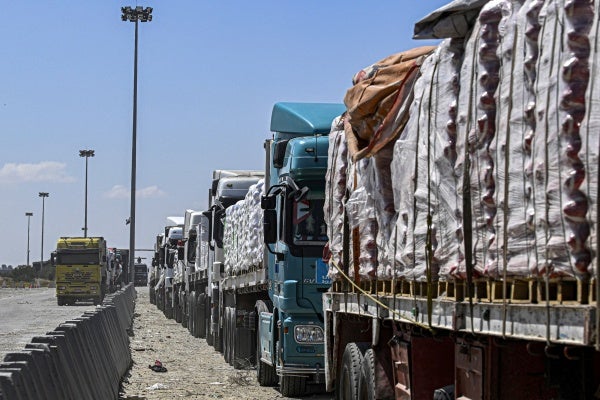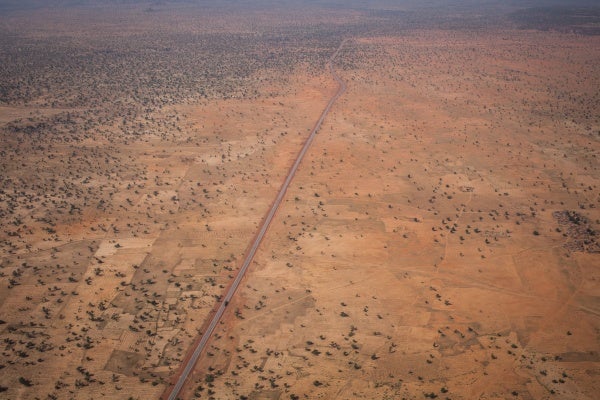Lire la version en français / Hier die deutsche Ausgabe lesen / Lea la versión en español
Israel is starving Gaza, and children are paying the price.
It’s doing this in defiance of the World Court, and today, I’m going to go into a bit of detail to explain what’s been happening in The Hague, but please, never forget this fundamental point: the government of Israel is starving Gaza as a weapon of war.
The International Court of Justice has issued legally binding orders requiring Israel to enable the provision of basic services and humanitarian assistance. The Court has done this twice, in fact: first in January and again in March.
Let’s be clear about a couple of things here.
First, the International Court of Justice – the ICJ, also called “the World Court” – is not the same thing as the International Criminal Court, the ICC. They are both based in The Hague, and they are both in the news regarding the Gaza crisis, so I’ve seen some confusion out there, particularly on social media.
The ICC can deal with individual responsibility for atrocity crimes – including war crimes, crimes against humanity, ethnic cleansing, and genocide. It has not issued indictments related to the Gaza crisis yet, but rumors of possible indictments of top Israeli officials, and inappropriate threats of retaliation against ICC officials from US senators and others, have been in the headlines.
The ICJ does not deal with individuals; it deals with states, specifically international legal disputes between states. In the relevant case here, South Africa is alleging that Israel is violating the international Genocide Convention of 1948. The ICJ is being asked to make a legal determination about state responsibility for genocide.
The ICJ has not made that determination one way or the other yet. It may take years before they rule on the question of genocide.
However, the ICJ has issued what are called “provisional measures” to address the immediate situation. Citing “catastrophic conditions” in Gaza in January, the court issued legally binding orders, including an order to enable the provision of basic services and humanitarian assistance. They gave the government of Israel a month to comply, and the government pretty much ignored the Court.
In March, with the “spread of famine and starvation,” the Court imposed additional measures, ordering Israel to ensure the unhindered provision of humanitarian assistance, in full cooperation with the UN, including by opening new land crossing points. Again, Israel contravened the Court and the legally binding order.
It’s true that in April Israeli authorities allowed more aid trucks to enter Gaza, and opened an additional crossing and allowed construction of a port for aid entry. However, the increase in aid was small, nowhere near enough to meet the overwhelming need, according to the UN and humanitarian groups, who reported that Israel continued to block critical aid items.
The most recent news from the ground is even more grim. On May 5, Israeli authorities closed the Kerem Shalom crossing after a Hamas rocket attack, and on May 7, they seized the Rafah crossing, thus blocking aid entering from Egypt currently.
There’s a lot of detail here, I know, but the result of all this is straightforward enough. Hundreds of thousands of Palestinians, about half children, face famine, and many risk dying of starvation following Israel’s continued disregard for the law.
In short, Israel is starving Gaza, and children are paying the price.








